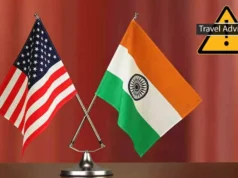ECONOMYNEXT —The process followed in enacting Sri Lanka’s controversial Online Safety Act (OSA) raises serious questions on law-making and its impact on constitutional democracy, the Centre for Policy Alternatives (CPA) said, urging the government to replace the act with a law that “genuinely addresses” concerns on online safety.
Claiming that the process of drafting the OSA was shrouded in secrecy, CPA said the rushed manner of its passage raises questions as to the intentions of the government in enacting a law that has significant implications for fundamental rights and the rule of law in Sri Lanka.
“CPA has previously commented on the substance and process followed with the Bill and challenged its constitutionality. In light of recent events surrounding the enactment of the OSA, CPA condemns the enactment of such a draconian law that can further limit freedom of speech and the right to dissent,” the organisation said.
“It is with concern that CPA notes the issues surrounding committee stage amendments of January 24, 2024. With the Supreme Court ruling requiring 31 amendments for the passage of the Bill with a simple majority in Parliament, questions were raised concerning the compliance with Article 78(3) of the Constitution which states that ‘Any amendment proposed to a Bill in Parliament shall not deviate from the merits and principles of such Bill’.
“CPA at the outset noted that the committee stage amendments proposed were substantial alternations, requiring the Bill to be withdrawn and re-gazetted. Despite this, the Government proceeded with the Bill, while failing to adopt mandatory changes required by the Supreme Court to pass the law with a simple majority.
For example, CPA said, the Supreme Court required that the State ensures that all persons involved in investigations maintain confidentiality of information obtained from the subject of investigations. However, the current Act contains no such protection (see page 60 of the determination). It was also determined by the Court that the inclusion of terminology such as “malicious” and “wantonly” was vague (see page 48 of the determination), yet, the OSA continues to use such wording in Section 14.
Moreover, CPA noted, it was determined that certain services, such as emails that are the only user-generated content enabled by the service or SMS/MMS services, must be exempted from the OSA (see pages 59 to 60 of the determination). However, these changes were not made and the provisions on which the Supreme Court raised concerns continue under Section 27 of the OSA, thus raising concerns that the Supreme Court’s decision was selectively ignored.
“The government’s rush to enact the OSA and its disregard for the Supreme Court determination has resulted in a constitutional crisis, raising questions about the legality of the OSA. Moreover, by intentionally undermining the determination of the Supreme Court, the Government is setting a dangerous precedent that has implications for the rule of law and separation of powers in Sri Lanka.
“These concerns are also in the context of multiple other issues with the OSA that have been previously raised by CPA such as the broad powers of the Online Safety Commission, vague terminology and the role of experts, among others,” the organisation said.
In light of these and other concerns, CPA said it urges the Government to review the process and substance of the OSA, take immediate steps to repeal the OSA and introduce a law that genuinely addresses the concerns of online safety. CPA also called on the government to have a transparent and inclusive law-making process that provides time for stakeholder consultations and review.
“The processes followed with the enactment of the Personal Data Protection Act No. 09 of 2022 and Right to Information Act No. 12 of 2016 are some examples where sufficient time was taken to ensure the law-making process was transparent and that it factored in diverse viewpoints. Such practices of good governance are fundamental for Sri Lanka at its present stage of recovery and reform,” it said.








